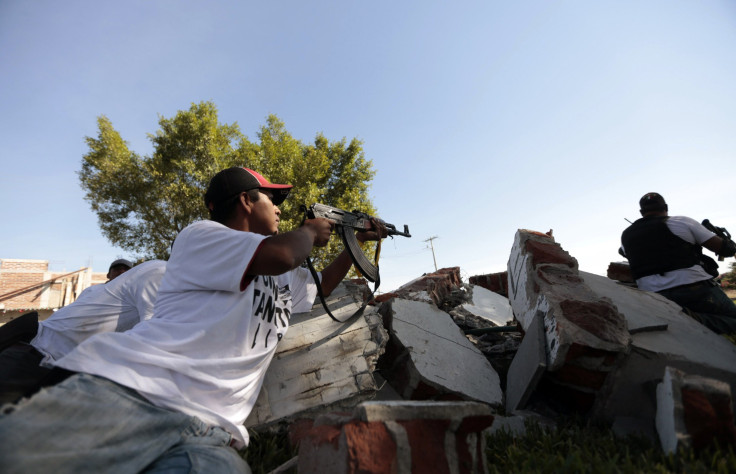Mexican President Enrique Peña Nieto Has Announced An Investment Of $3B In The Violence-Ridden State Of Michoacán

The Mexican region of Michoacán has not had the best of months -- or even years. The state, bordering the Pacific ocean in the west of the country, has spent the last year, particularly the last four weeks, in a deeply violent riot between drug traffickers, Mexican police and armed residents, in an effort to control one of the most impoverished, crime-ridden parts of the country.
President Enrique Peña Nieto, after repeated demands from the local vigilantes to take action, announced on Wednesday that the Mexican government will be investing 45.5 billion Mexican pesos ($3.4 billion) in the region. Such investment is three times larger than the yearly state budget, and the amount will be used for the construction of roads, hospitals and schools, and to start a new program for student scholarships.
The announcement was made in Morelia, capital of Michoacán, and the president said the forces of the state will remain “indefinitely, for as long as it is needed.” Some 10,000 policemen and army men have been stationed in the region since mid-January, when the situation became unbearable. The government considered the militarization of the state the first stage in solving the conflict; the second, a push in investment to “restore the social network and economic development of the state.”
The money will be used to grant 350,000 scholarships, to invest in a modernization of the watering canals, for an update of the port and for road and highway work. The president has also promised that the Bank of Mexico will grant loans to Michoacán’s entrepreneurs totaling 12 billion pesos ($800 million). “Civil works are necessary for the development and prosperity of the state,” he said.
This was Peña Nieto’s second visit to Michoacán as president of Mexico since he was sworm in Dec. 1, 2012, but the first to specifically address the safety crisis in the region.
Peña Nieto named a commissioner to Michoacán, Alfredo Castrillo, who assured there have been significant advances in safety in the area, including the seizing of 800 illegal weapons, mostly from civilians with no ties to drug trafficking.
Michoacán has always been a delicate state, largely controlled by drug cartels like La Familia, which extort and suppress the local economy. On the other side of the scale we have the “vigilantes,” a group of heavily armed residents who have taken it upon themselves to protect their towns and businesses from the pressure of the drug traffickers -- who have proven to be as effective and lethal as their opponents.
These organized “autodefensas,” as the vigilantes call themselves, are not specific to Michoacán -- neighboring states like Sinaloa and Guerrero also have them. The system is so spread out that the government has decided to start a process to legalize the groups, a promise that not everybody believes.
“Nobody is going to leave their weapons,” said José Manuel Mireles, a surgeon by practice and moral leader of the Michoacán autodefensas, in a televised interview.
“There are good intentions from the federal administration, but the government has hindered more than helped for now,” Mireles says, explaining how the vigilantes take it with a pinch of salt every time the government says they've have captured a cartel kingpin.
“We know the traffickers, and we have been seeing for years how the government takes any drunk and announces it as if they had taken the cocaine king of Mexico. We are just not convinced until we see proof,” he added.
Mireles said that the autodefensas started from tiredness of waiting for action from the government. “We will not be in peace until they fall,” he said. “And if nobody else will make them fall, then we will.”
© Copyright IBTimes 2024. All rights reserved.











